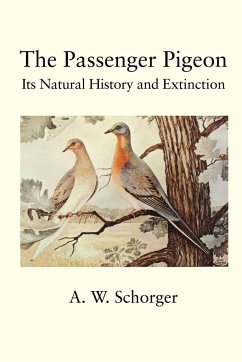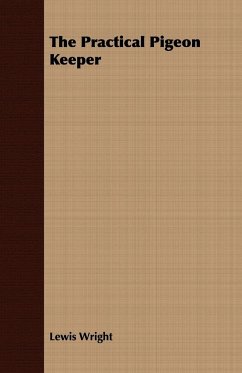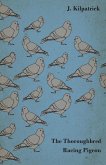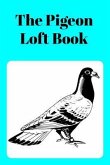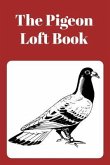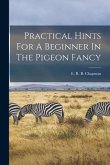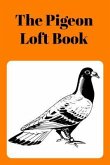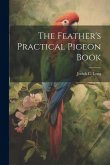Published in 1955 by the University of Oklahoma Press, this is the classic study of the extinction of the passenger pigeon. The passenger pigeon, once probably the most numerous bird on the planet, made its home in the billion or so acres of primary forest that once covered North America east of the Rocky Mountains. Their flocks, a mile wide and up to 300 miles long, were so dense that they darkened the sky for hours and days as the flock passed overhead. Population estimates from the 19th century ranged from 1 billion to close to 4 billion birds. Total populations may have reached 5 billion birds and comprised up to 40% of the total number of birds in North America. This may be the only species for which the exact time of extinction is known. No appreciable decline in the numbers was noted until the late 1870s but, thereafter, their destruction took only twenty-five years. The immense roosting and nesting colonies invited over-hunting. Tens of thousands of individuals were harvested daily from nesting colonies, and shipped to markets in the east. Modern technology hastened the demise of the passenger pigeon. With the coming of the telegraph, the locations of flocks could be ascertained, and the birds relentlessly pursued. The last bird died in 1914 at the Cincinnati Zoological Garden before any competent ornithologists could write an account of the species. A. W. Schorger reconstructed the life history of the passenger pigeon. Through painstaking research, he examined every aspect of the species -- behavioral characteristics, feeding methods, traveling and roosting habits, nesting - and the various stages of the species encounter with man, from utilization by the Native American to extinction at the hands of white settlers. From the original reviews: "This really shocking book ought to be required reading for every thoughtful citizen" Audubon Magazine "Reads as fascinatingly as many a novel" Cleveland Plain Dealer "Prodigious" Newsweek "Absorbing" Scientific American "An excellent book" Michigan History
Hinweis: Dieser Artikel kann nur an eine deutsche Lieferadresse ausgeliefert werden.
Hinweis: Dieser Artikel kann nur an eine deutsche Lieferadresse ausgeliefert werden.

